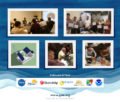A true allergic reaction happens when your immune system goes into overdrive to attack something it sees as a threat. Allergic reactions can cause hives, facial swelling, nausea, and vomiting. They can also lead to life-threatening reactions like anaphylaxis. The only way to avoid beer allergy symptoms is to avoid drinking beer. If you might have a beer allergy, a provider would use common ingredients in beer (e.g., wheat and barley) for the test.
It is stronger after a winemaking process than it was before, making it an integral part of the finished product. In addition to raisins and dried fruits, sulfates are used as preservatives in some foods, including wines. The presence of sulfites does not always mean the wine is of a lower quality and, in fact, may be used to prevent spoilage.
When to see a doctor
Sneezing is your body’s natural reaction to irritation in your upper respiratory tract, especially your nose. If you regularly sneeze after eating, you might be wondering how something in your stomach can irritate your nose. Eating certain types of food or very large meals can both cause 50 Substance Abuse Group Therapy Activities for Recovery nasal irritation. My wife goes into sneezing attacks when drinking ANY alcoholic beverage. An OTC allergy medication, about 1/2 hour before imbibing, seems to prevent this most of the time. Even those who only deal with nasal congestion from alcohol can benefit from Sunset’s ingredients.
Additionally, when you consume alcoholic beverages, your blood vessels widen and cause more blood to flow to the nasal tissues, leading to additional swelling. Histamine intolerance is a complex condition that can be caused by several different factors. It occurs when your body has difficulty metabolizing the histamines found in certain foods and drinks, such as wine or beer. If you experience sudden sneezing after consuming these beverages, it may be an indication of histamine intolerance. The key to managing histamine intolerance is to recognize which foods and drinks are high in histamine levels and avoid them. For instance, beer and wine contain high levels of histamine, which can also contribute to a runny nose or nasal congestion.
Sunset Forte Alcohol Flush Support
Intolerance to histamine may be caused by the inability to break down or eliminate the compound. In contrast to sulfite intolerance, alcoholic hepatitis is a liver disease that occurs when the body cannot break down alcohol efficiently. Symptoms of alcoholic hepatitis may include jaundice (yellowing skin or eyes), fatigue, nausea, and abdominal pain.
Your skin’s reaction can help them learn if you have an allergy. The symptoms of histamine intolerance are similar to an allergic reaction. For example, potential symptoms include red and itchy skin, nasal congestion, shortness of breath, abdominal pain, and diarrhea. While the main ingredient in beer is water, people with beer allergy symptoms are often sensitive to beer ingredients like wheat, yeast, sulfites, and histamine. Alcohol intolerance can cause immediate, uncomfortable reactions after you drink alcohol. The most common signs and symptoms are stuffy nose and skin flushing.
Why Do I Sneeze While Drinking Wine?
Gustatory rhinitis is a type of nonallergic rhinitis that’s caused by eating certain foods, usually spicy or hot ones. Drinking alcohol can also cause a gustatory rhinitis flare-up. Rhinitis is the medical term for inflammation of the mucus membrane in your nose. This inflammation leads to sneezing, stuffiness, and a runny nose. Rhinitis is often broken down into allergic and nonallergic rhinitis. The different types depend on whether or not it’s caused by allergies.
The most common symptoms reported by those with sulfite sensitivity are nausea, headaches and skin rashes. In extreme cases, symptoms such as difficulty breathing and https://en.forexdata.info/top-10-best-sober-houses-in-boston-ma-january-2024/ anaphylaxis have been reported. It’s important to be aware of this potential reaction before drinking white wine, as it could lead to an unpleasant experience.
They will be able to provide the best advice for treating any underlying medical condition. It is important to be aware of any symptoms you may experience after consuming alcohol. While it can sometimes be harmless, there are times when the underlying cause could be more serious. In particular, if you have developed an intolerance or allergy to wine, then this could lead to more severe reactions such as anaphylaxis. Symptoms of a wine allergy include rashes, nasal congestion, wheezing or a tingling sensation around the mouth and throat. But most symptoms are more commonly from the food sensitivity or intolerance category.
Ok, so now that we’ve answered the question – why does my nose get stuffy when I drink? – it’s time to determine whether this is really a cause for concern or not. This is especially true if you suffer the occasional 2-day hangover. This effect can also make you feel hot when you drink alcohol, but it can also lead to short-term nasal congestion. The blood vessels around your nasal cavity can expand, making it a bit more difficult to breathe normally. Nonallergic rhinitis involves sneezing or a stuffy, drippy nose.







0 responses on "Why Do I Sneeze When I Drink Alcohol?"